
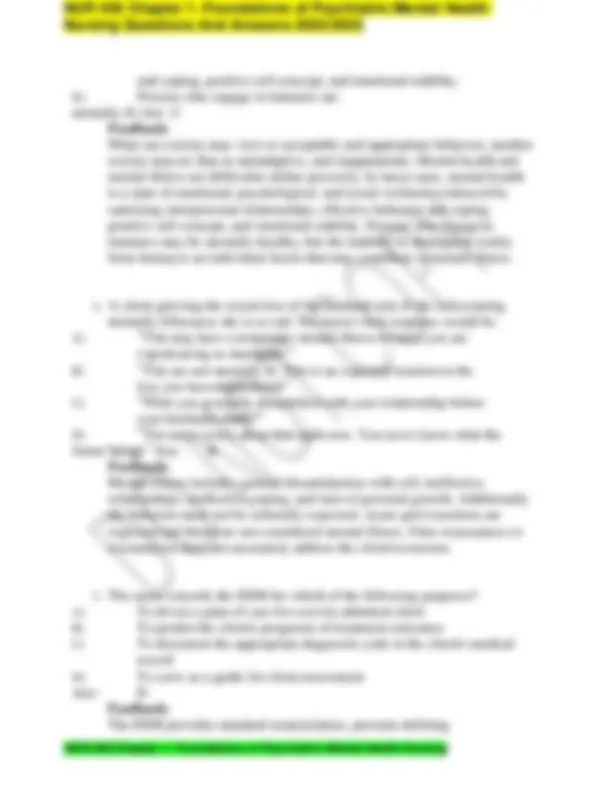
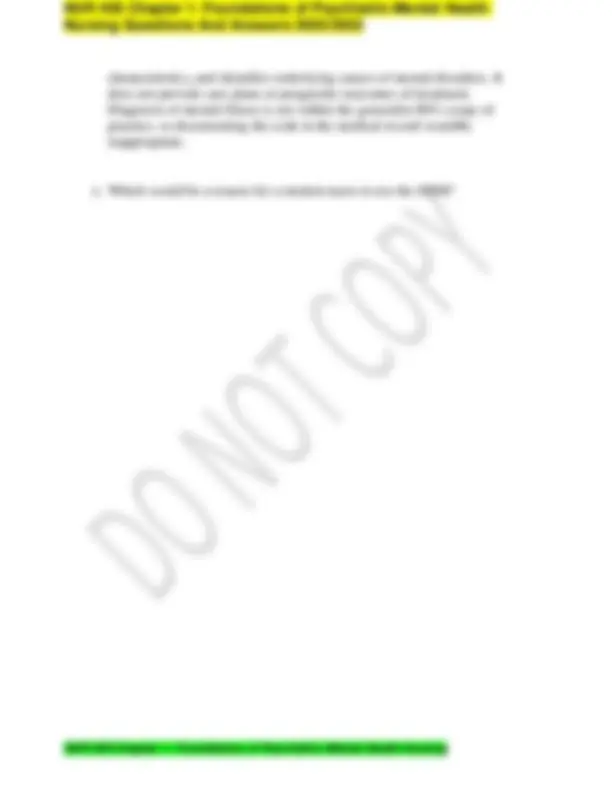
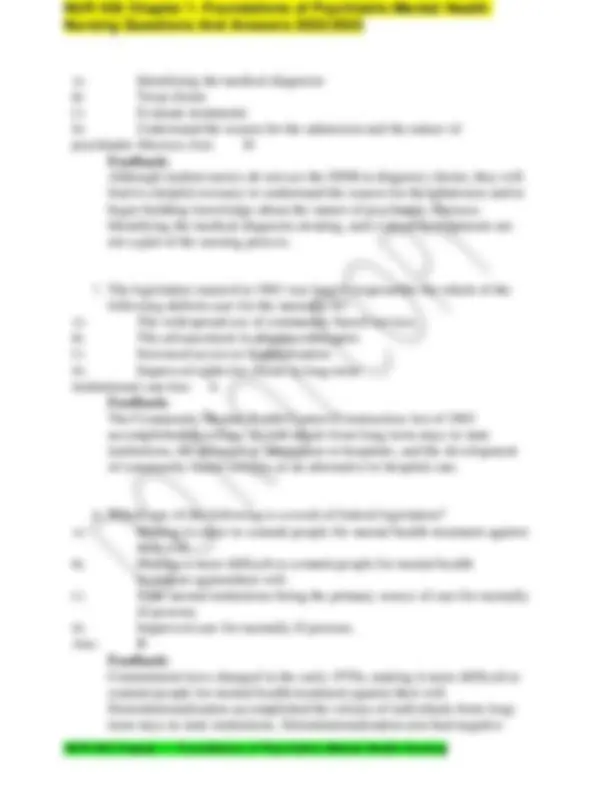

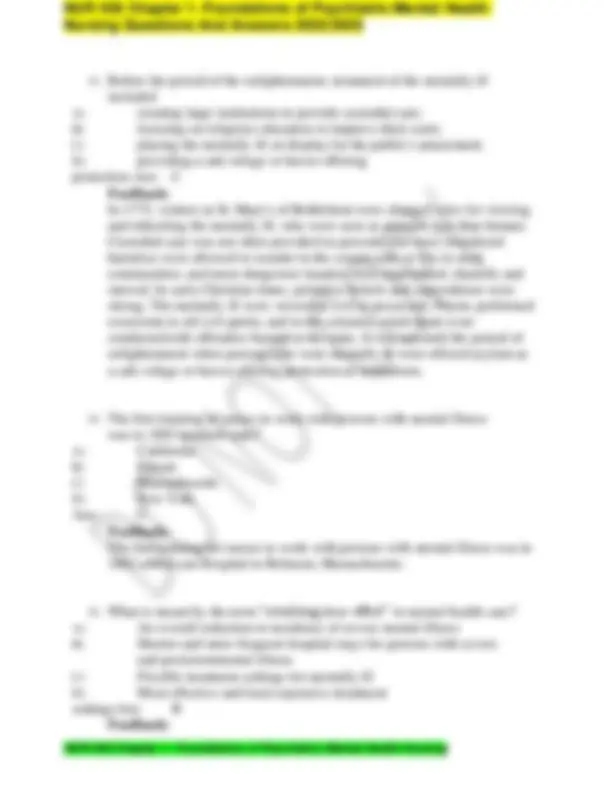
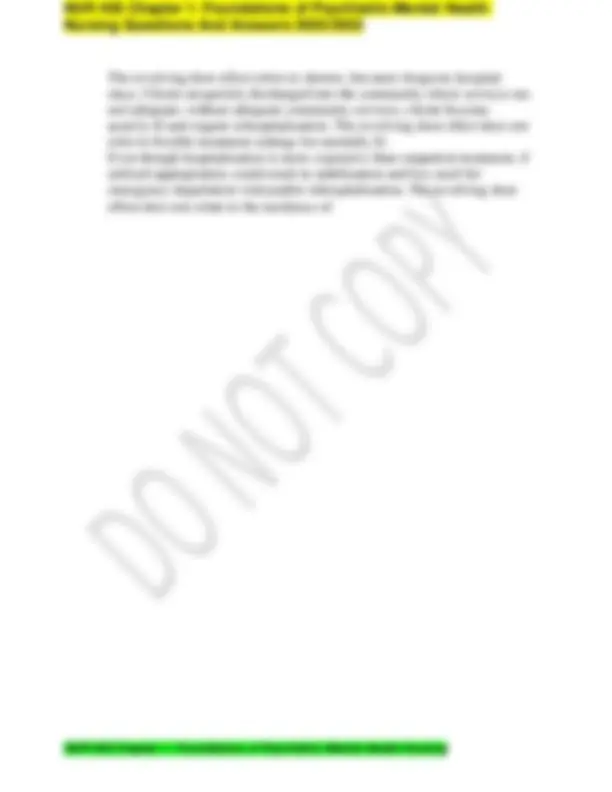
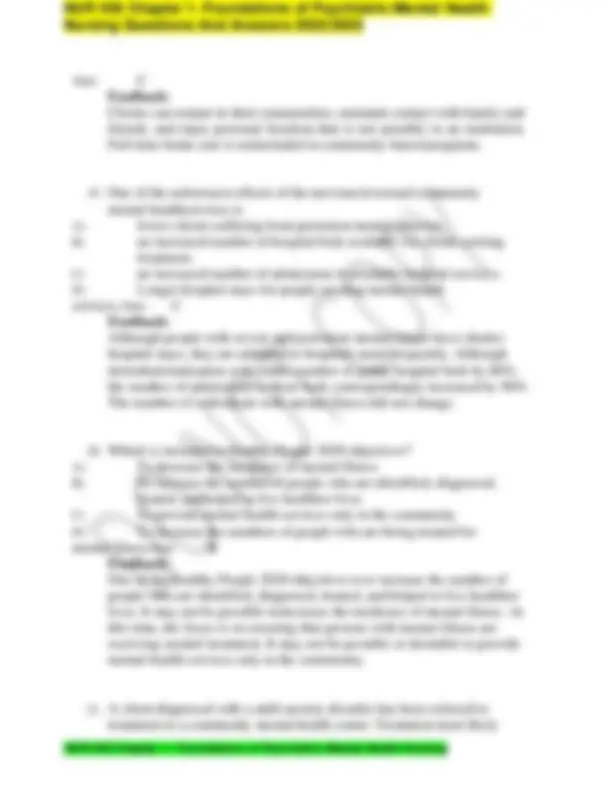
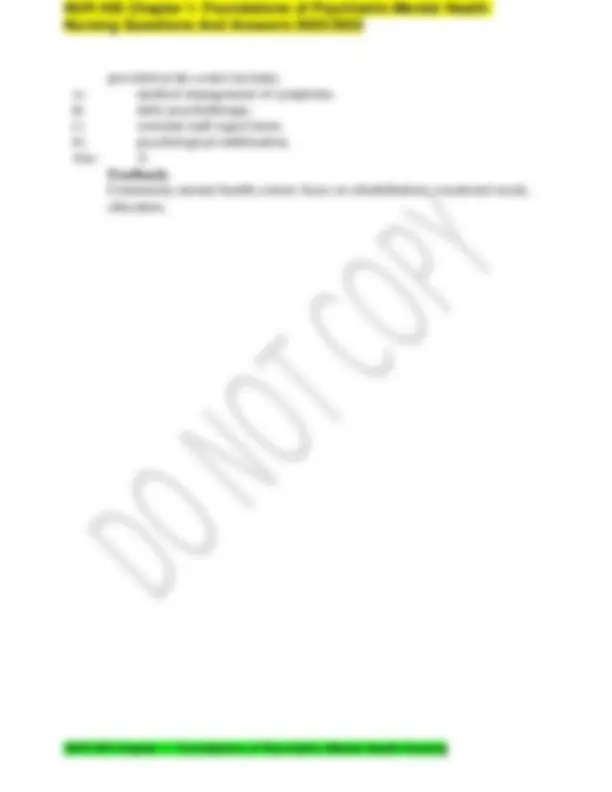
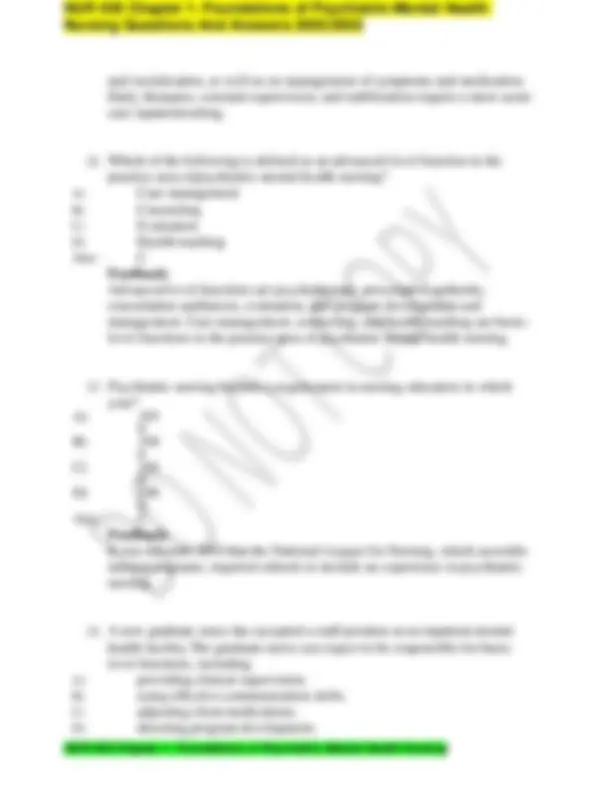
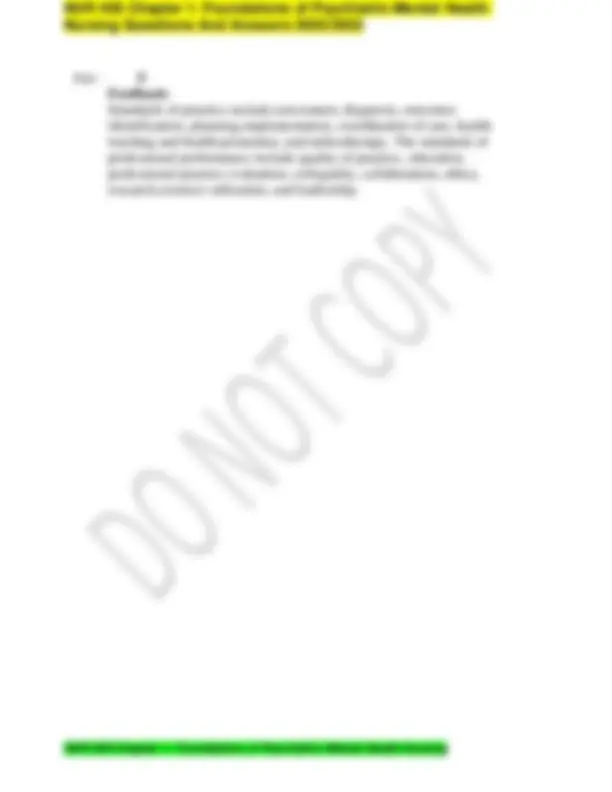
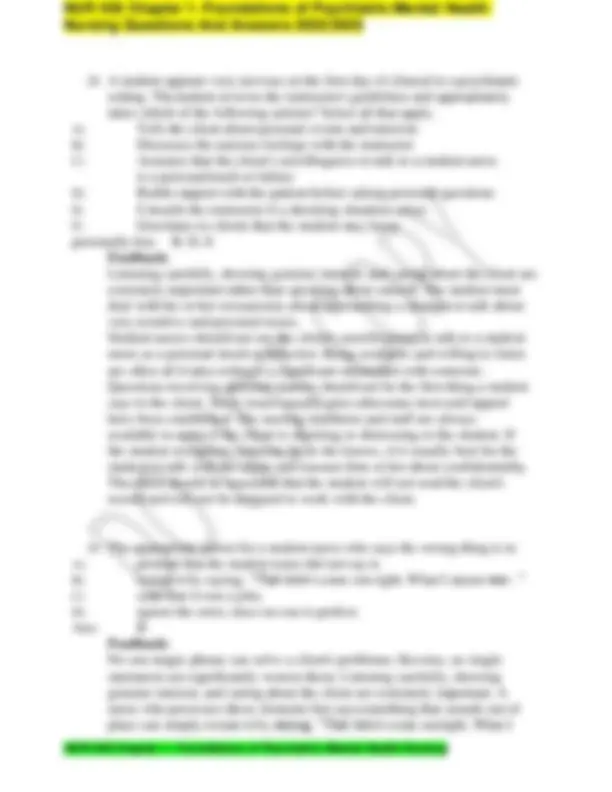



Study with the several resources on Docsity

Earn points by helping other students or get them with a premium plan


Prepare for your exams
Study with the several resources on Docsity

Earn points to download
Earn points by helping other students or get them with a premium plan
Community
Ask the community for help and clear up your study doubts
Discover the best universities in your country according to Docsity users
Free resources
Download our free guides on studying techniques, anxiety management strategies, and thesis advice from Docsity tutors
Questions and answers related to the foundations of psychiatric-mental health nursing. It covers topics such as factors contributing to mental health, mental illness, the nursing process, legislation related to mental health, and treatment of mental illness. explanations and feedback for each question, making it a useful study resource for nursing students.
Typology: Exams
1 / 20

This page cannot be seen from the preview
Don't miss anything!













from mental illness may experience dissatisfaction with relationships and self.
characteristics, and identifies underlying causes of mental disorders. It does not provide care plans or prognostic outcomes of treatment. Diagnosis of mental illness is not within the generalist RN's scope of practice, so documenting the code in the medical record would be inappropriate.
A) Identifying the medical diagnosis B) Treat clients C) Evaluate treatments D) Understand the reason for the admission and the nature of psychiatric illnesses. Ans: D Feedback: Although student nurses do not use the DSM to diagnose clients, they will find it a helpful resource to understand the reason for the admission and to begin building knowledge about the nature of psychiatric illnesses. Identifying the medical diagnosis, treating, and evaluating treatments are not a part of the nursing process.
Ans: B Feedback: The 1963 Community Mental Health Centers Act intimated the movement toward treating those with mental illness in a less restrictive environment. This legislation resulted in the shift of clients with mental illness from large state institutions to care based in the community. Answer choices A, C, and D were not purposes of the 1963 Community Mental Health Centers Act.
C) the Patient's Bill of Rights was enacted. D) psychotropic drugs became available for use. Ans: D Feedback: The development of psychotropic drugs, or drugs used to treat mental illness, began in the 1950s. Answer choices A, B, and C did not occur in the 1950s.
The revolving door effect refers to shorter, but more frequent, hospital stays. Clients are quickly discharged into the community where services are not adequate; without adequate community services, clients become acutely ill and require rehospitalization. The revolving door effect does not refer to flexible treatment settings for mentally ill. Even though hospitalization is more expensive than outpatient treatment, if utilized appropriately could result in stabilization and less need for emergency department visits and/or rehospitalization. The revolving door effect does not relate to the incidence of
severe mental illness.
Ans: C Feedback: Clients can remain in their communities, maintain contact with family and friends, and enjoy personal freedom that is not possible in an institution. Full-time home care is not included in community-based programs.
provided at the center includes A) medical management of symptoms. B) daily psychotherapy. C) constant staff supervision. D) psychological stabilization. Ans: A Feedback: Community mental health centers focus on rehabilitation, vocational needs, education,
Ans: B Feedback: Basic-level functions include counseling, milieu therapy, self-care activities, psychobiologic interventions, health teaching, case management, and health promotion and maintenance. Advanced-level functions include psychotherapy, prescriptive authority for drugs, consultation and liaison, evaluation, program development and management, and clinical supervision.
practice for psychiatric–mental health nursing? A) Prescriptive authority is granted to psychiatric–mental health registered nurses. B) All aspects of Standard 5: Implementation may be carried out by psychiatric– mental health registered nurses. C) Some aspects of Standard 5: Implementation may only be carried out by psychiatric–mental health advanced practice nurses. D) Psychiatric–mental health advanced practice nurses are the only ones who may provide milieu therapy. Ans: C Feedback: Prescriptive authority is used by psychiatric–mental health advanced practice registered nurses in accordance with state and federal laws and regulations. Standards 5D–G are advanced practice interventions and may be performed only by the psychiatric–mental health advanced practice registered nurse. Psychiatric–mental health registered nurses may provide milieu therapy according to Standard 5C. This is not restricted to psychiatric–mental health advanced practice nurses.
meant was…” Pretending that the student nurse did not say it, stating that it was a joke, and ignoring the error are not likely to help the student nurse build and maintain credibility with the client.